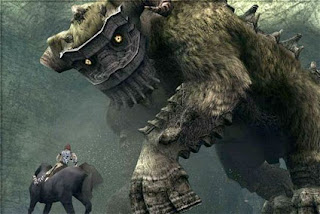Game: Orcs Must Die!
Developer: Robot Entertainment
Genre: Tower Defense/Third-Person shooter.
System played on: PC (Steam)
Rated: T (Blood, gore, violence)
Sometimes you want to play a game with a thought provoking story, an immersive world and well developed characters; other times you just want a game about killing lots and lots of orcs. If you didn't guess by the title, Orcs Must Die! resides in the latter category, and boy does it do a good job at orc killing.
Gameplay: Despite its orc ridden appearance and title, Orcs Must Die! has more in common with Plants vs. Zombies than, say, more orc-focused games like Warhammer and Warcraft. Orcs Must Die Is a Tower Defense game but plays like a fast paced third-person shooter. The game plays very quick and is always focused on the action of the moment. As you proceed through the game, you get new traps after completing each level. After every wave you get a few seconds to set up some traps, and after three rounds you get full breathing room to set up your deadly devices of orc dismemberment for the next couple of waves.
Orcs Must Die! Is more forgiving than other Tower Defense games since if your traps fail to kill off enough orcs, you yourself can take them out by the hundreds with your trusty crossbow, sword and spells. Combat is fluid and fast paced. Placing traps is simple and easy to do; just select the trap and place it. You don't have to go through a pants-load of menus. Just set it and forget it.
Story: The story in Orcs Must Die! is only really made up of a few cut-scenes (less than a handful) dispersed throughout its 24 levels but is entertaining and ends in a surprisingly interesting way. The story in itself isn't the strongest out there, but you will pretty much be having too much fun killing orcs, setting up traps and planning your next strategy to care.
The main character has a few funny quips here and there (usually about his former teacher), but he will mostly repeat jokes that weren't that funny to begin with.
Visuals: Orcs Must Die! lends itself to a more cartoony cell shading which definitely adds spunk that you wouldn't have gotten otherwise. Even though all of the levels have pretty much the same aesthetic design, they each feel unique, and each level requires you to change up your tactics to fit said level.
Final Thoughts: In the way of replay value, Orcs Must Die! is rather limited to replaying old levels at a higher difficulty, but it is still a fun game that can easily please any Tower Defense or Third-person shooter fan.
9/10

























